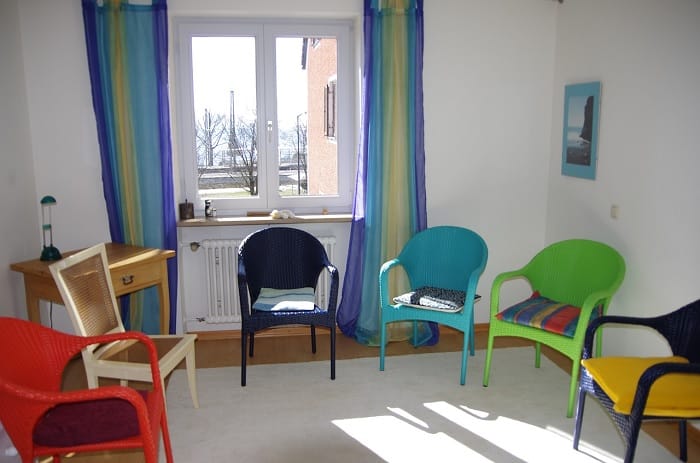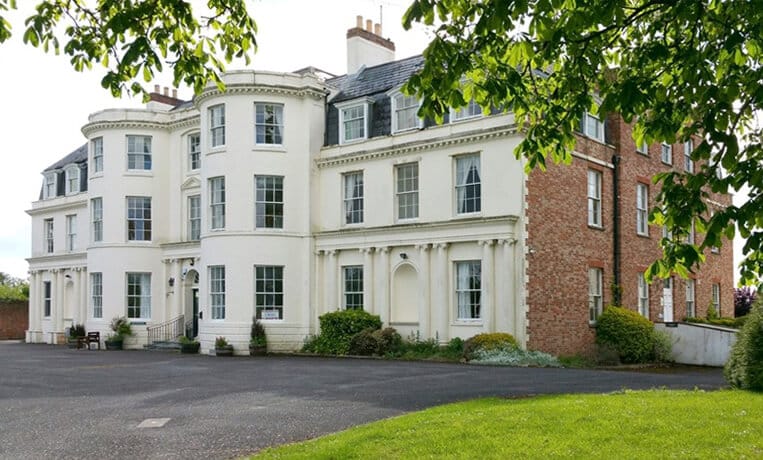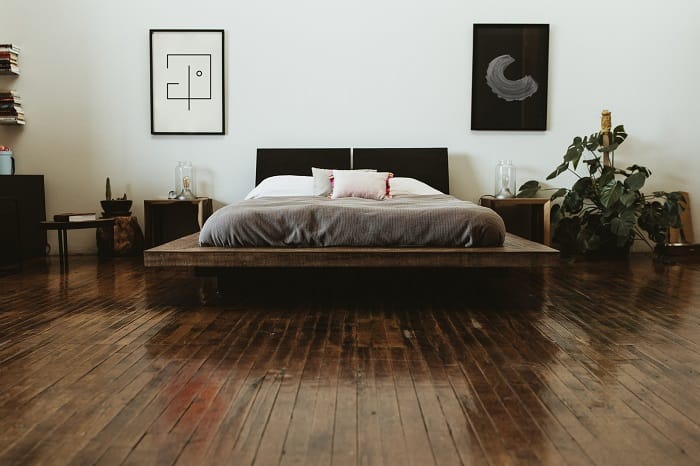Like elsewhere in the UK, some in Northamptonshire are struggling with drug and alcohol addiction and need drug and alcohol rehabs in Northamptonshire.
It is incredibly easy for social alcohol use to turn into daily or binge drinking without notice, and the same is true of any addictive substance.
If you’re one of them, why not contact Rehab 4 Addiction and get immediate access to the help and support at a drug or alcohol rehab clinic in Northamptonshire that you need?
Northamptonshire suffers significantly [1] from addiction issues, with recent statistics indicating the need for proper drug or alcohol rehab treatment at private rehab clinics across the county of Northamptonshire.
Since 2010, we’ve helped countless people to find suitable drug and alcohol rehab clinics in Northamptonshire and near Northamptonshire, with many of them overcoming their issues and going on to live happier and healthier lives.
Modern drug and alcohol rehabs in Northamptonshire offer CQC (Care Quality Commission) approved drug rehabilitation and alcohol rehabilitation services.
These offer evidence-based treatments and drug and alcohol rehab programmes, either at an inpatient rehab or an outpatient rehab programme in Northamptonshire.
Any medicated drug or alcohol detox procedures using prescription drugs during rehab will follow NICE Guidelines. [2]
These treatments in the county of Northamptonshire include cognitive behavioural therapy, dialectical behavioural therapy (dialectical behaviour therapy) and modern psychotherapy for alcohol misuse or drug addictions requiring a drug detox.
We can find a first-rate drug or alcohol rehab recovery programme for you today.
If you’re ready to take the first step to a clean and sober future with drug and alcohol rehab in Northamptonshire, get in touch today.

Drug and alcohol abuse are huge problems globally, with addiction affecting countless people and taking countless lives every year.
Despite this, many suffering from addiction don’t know that they need addiction treatment through drug and alcohol rehab in Northamptonshire.
So, it’s vital to know the signs of drug and alcohol abuse so you know when it’s time for drug and alcohol rehab.
Those most in need of drug and alcohol rehab treatment in Northamptonshire and near Northamptonshire would include:
There is another addiction screening tool used at drug and alcohol rehab in Northamptonshire that can help you to determine if you have an issue with drug or alcohol addiction, the 4 Ps – standing for Parents, Partner, Past, and Present. To conduct this test, you need to ask:
Get the help you need from a drug and alcohol rehab in Northamptonshire by calling us today on 0800 140 4690

Admitting yourself to drug and alcohol rehab in Northamptonshire or near Northamptonshire can be confusing and daunting as you search tirelessly for the right drug rehab and alcohol rehab centre.
But at Rehab 4 Addiction, we are here to help you find the most effective path to recovery from drug and alcohol addiction.
The first step you’ll need to take is to contact a treatment provider or drug rehab and alcohol rehab referral service in Northamptonshire like ourselves to discuss your needs.
By completing an easy assessment through Rehab 4 Addiction, we can assess your needs to make appropriate referrals for drug and alcohol rehab clinics in Northamptonshire that would most benefit you.
We’ll always consider your circumstances and personalised drug or alcohol rehab needs to find the proper physical and psychological therapies, location, setting and price for you in Northamptonshire.
Then, once you’ve decided on a drug and alcohol rehab centre in Northamptonshire, you’ll undergo a more thorough drug or alcohol addiction assessment to ensure you receive a comprehensive treatment plan.
You will discuss your level of drug or alcohol intake and any physical drug or alcohol dependence.
These tests all allow for your drug and alcohol rehab in Northamptonshire to create a bespoke, person-centred care plan made up of physical and psychiatric treatments, chosen specifically for the way they meet your needs and preferences.
If these criteria have made you wonder about your own need for drug and alcohol rehab in Northamptonshire, then begin the admissions process by calling our team on 0800 140 4690

Often, it can take the intervention of friends and family for individuals to understand that they have a problem with drug or alcohol addiction.
Therefore, staging an intervention can be a vital aspect of the pre-drug and alcohol rehab steps in helping your loved one get the support they need in Northamptonshire.
An intervention in a pre-coordinated attempt by friends and family, with the sole purpose of explaining to your loved one how their alcohol has become a problem for everyone involved and why they need help from a professional drug and alcohol rehab.
However, the aim should always be to encourage your loved ones to accept that they have a problem with drugs or alcohol and encourage them to get help from a drug and alcohol rehab in Northamptonshire.
But, because individuals struggling with alcohol or substance abuse often find it hard to accept that they have a problem, enlisting an intervention specialist will give you the tools you need to do this.
If you’re ready to take the first step to a clean and sober future with drug and alcohol rehab in Northamptonshire, get in touch today.

A few factors will have an impact on the exact cost of drug and alcohol rehab in Northamptonshire or near Northamptonshire.
For starters, different drug and alcohol rehab centres in Northamptonshire will have different prices.
How long you plan to stay in a drug rehab and alcohol rehab in Northamptonshire is another big factor, as is whether you choose a private or multiple occupancy room.
But rest assured, there is a drug and alcohol rehab in Northamptonshire out there to suit anyone’s budget. For example, those on a tight budget may want to consider the low cost of £1,500 for home detox, which can bring its own level of success.
Unfortunately, however, the budget price for drug and alcohol rehab in Northamptonshire means you won’t receive withdrawal care around the clock.
However, if you can afford at least a 10-day detox programme at a drug and alcohol rehab in Northamptonshire, it gives you a better chance of sobriety.
For a 10-day drug and alcohol rehab stay in a multi-occupancy in Northamptonshire, you’ll spend between £2,000 to £4,000, or £3,000 to £6,000 for a single occupancy room.
Depending on the severity of your addiction, you may have more success with a 28-day drug and alcohol rehab stay. The cost ranges from £8,000 to £12,000 for a single occupancy room or £6,000 for a multi-occupancy room.
A quick call to our helpline means we can try to give you more exact prices for drug and alcohol rehab in Northamptonshire, where possible.
To get a more personalised answer to how much your time at a drug and alcohol rehab in Northamptonshire will cost, call us today on 0800 140 4690

As standard, we always refer our clients to private drug rehab and alcohol rehab clinics in Northamptonshire and near Northamptonshire due to their effectiveness, but this will incur treatment costs.
For those on a reduced budget for drug and alcohol rehab, this can cause some worry.
For those who cannot afford private drug and alcohol rehab in Northamptonshire, there are council-funded drug and alcohol rehab treatments that are entirely free.
Although both options work hard to get you back on track to sobriety, there are pros and cons to private drug and alcohol rehab and council-funded drug and alcohol rehab in Northamptonshire.
If you’re ready to take the first step to a clean and sober future with drug and alcohol rehab in Northamptonshire, get in touch today.
There are plenty of options available if you can’t afford to go to private drug and alcohol rehab in Northamptonshire.
Free and NHS-run drug and alcohol rehab services in Northamptonshire and near Northamptonshire – both those offered through NHS Foundation Trusts and local charities [10] – include:
Address: First Floor, Newland House, Northampton, NN1 3EB
Telephone: 03000 273 737
Website: https://www.nhft.nhs.uk/camhs
Address: 1-9 Barton Road, Bletchley, Milton Keynes, Buckinghamshire, MK2 3HU
Telephone: 01234 219 817
Website: https://www.turning-point.co.uk/
Address: Spring House, 39 Billing Road, Northampton, NN1 5BA
Telephone: 0808 169 8512
Website: https://www.changegrowlive.org/substance-to-solution-northamptonshire/northampton
Address: 63c Gold Street, Northampton, NN1 1RA
Telephone: 01604 621 259
Website: https://www.bridge-northants.org.uk/
There are several remote services that could also assist in overcoming drug and alcohol addiction.
These include Change Grow Live, We Are With You, Turning Point, the National Association for Children of Alcoholics and the National Institute for Health and Care Excellence (NICE).
Support groups in Northamptonshire such as Alcoholics Anonymous (AA), [13] Narcotics Anonymous (NA) [14] and Cocaine Anonymous (CA) [15] are highly effective and practical services, providing both peer support and the chance to lean on a higher power when addiction feels overwhelming.
When a family member’s drinking affects the whole family, it can be incredibly damaging, leaving deep wounds. Al-Anon Family Group Meetings [16] can help mend these wounds, as can Alateen. [17]
These family therapy sessions in Northamptonshire help you feel a little more understood, motivated, and confident as you listen to the group share experiences similar to your own, as well as some drug and alcohol rehab success stories from former patients.
Suffering from active addiction can be incredibly isolating and demoralising.
But just like family group sessions, SMART Recovery Groups in and near Northamptonshire [18] allow you to share and feel understood due to the social nature of the meetings.
You may also be able to gain access to a sober living house if your home environment is not helpful for your recovery, providing a space free from temptations similar to a residential drug and alcohol rehab.
Public-funded rehab treatment in Northamptonshire won’t cost you a penny but can incur long waiting lists for treatment, which can dampen your motivation.
This delayed waiting time is never an issue with a private drug and alcohol rehab clinic in Northamptonshire, as you receive almost immediate access to the essential treatment you need.
But, of course, this form of rehab always incurs a cost that might not be suitable for all.
This financial investment might seem expensive, but you’ll get personalised treatment options in Northamptonshire based on your needs with private rehab treatment.
These treatments in Northamptonshire range from vital medically managed detox clinics to essential talking therapies like Cognitive Behavioural Therapy (CBT), group therapy and holistic therapies.
To learn more about how a drug and alcohol rehab in Northamptonshire will help support your needs, call us on 0800 140 4690

Unfortunately, you don’t always get enough time with a therapist or the same therapist through public drug and alcohol rehab in Northamptonshire as the patient-to-therapist ratio is much higher.
When addiction is causing significant damage to life, having access to extensive treatments that are not always provided in council-funded rehab in Northamptonshire is vital to their long-term sobriety.
Furthermore, the highly skilled therapists and doctors at private rehab will ensure sure you don’t leave rehab in Northamptonshire without a relapse prevention plan in place.
Also, you’ll usually be offered a free 12-month aftercare programme to keep you on track.
Unfortunately, this is not always something you’ll have access to in council-funded treatment in Northamptonshire.
Lastly, because of the high waiting lists for council-funded treatment in Northamptonshire and across the UK, you might find yourself placed in an outpatient rehab centre if the wait is too long.
Private rehab in Northamptonshire allows you to be away from the distractions of rehab, while the time away from treatment sessions through non-residential rehab can place extra strain on your recovery.
If you are interested in attending private rehab in Northamptonshire, make sure to call us to help you find a rehab to suit your budget.
For more help choosing between private and public rehab in Northamptonshire, call our team today on 0800 140 4690

Just as the treatment you receive depends on your needs, type of addiction, and severity, so does the length of time you may spend in rehab in Northamptonshire.
However, because rehab tend to refer to residential care, the timelines are often shorter than outpatient rehab in Northamptonshire.
For milder addictions or those at risk of relapse, you may be able to complete your treatment at a rehab in Northamptonshire or near Northamptonshire over just seven days.
But for those where alcohol or drug use is damaging their life, a more extended 28-day stay in recovery has better success rates.
A 28-day rehab in Northamptonshire stay allows you to safely go through medically managed withdrawal and provides the time needed to go through vital therapies.
These therapies help you get to the bottom of your addiction and allow you to learn coping mechanisms against relapse triggers.
There isn’t a set limit, though. If your addiction warrants it, you’ll be able to extend your rehab stay in Northamptonshire for up to 28 days, often with the bonus of a free 12-month aftercare programme.
To find out how long your stay at drug and alcohol rehab in Northamptonshire will last, chat with our team today on 0800 140 4690

As tolerance to alcohol builds, so does the need for a safe and effective medically managed withdrawal at rehab in Northamptonshire.
Physically withdrawing from alcohol sets you up properly to receive the necessary therapy to ensure long-term sobriety.
Alcohol requires a detox because, like heroin, ketamine and many other substances, it is physically addictive.
A detox will not be necessary for every addiction in Northamptonshire, such as cannabis or cocaine, and of course, behavioural addictions like gambling addiction do not require a detox.
If you’re ready to take the first step to a clean and sober future with drug and alcohol rehab in Northamptonshire, get in touch today.
Withdrawing from alcohol is not easy, but rehab in Northamptonshire can make it easier.
Some of the most uncomfortable alcohol withdrawal symptoms including:
Severe alcohol addictions can even lead to potentially hazardous symptoms.
To ensure your safety, at Rehab 4 Addiction, we will always refer you to a detox clinic that can help you go through alcohol detox safely.
In addition, a rehab centre in Northamptonshire will be able to facilitate a medically-assisted detox using the benzodiazepine Chlordiazepoxide – better known as Librium – to ensure your safety.
Rehab clinicians will provide you with an appropriate dose to suit your level of alcohol addiction.
Another medication used at rehab in Northamptonshire is Acamprosate (Campral®) as it can help to rebalance the chemicals in the brain that have been damaged by alcohol.
An alcohol addiction can also cause anxiety and depression, which means your rehab in Northamptonshire may prescribe medications such as an antidepressant like nefazodone, desipramine, or imipramine.
The opioid antagonist Naltrexone can also be used to cut alcohol from your life as it decreases the alcohol you consume.
Naltrexone helps with uncoupling the relationship between alcohol and pleasure, which can speed up your recovery at rehab in Northamptonshire.
This form of treatment helps to ensure that panic, confusion, anxiety and withdrawal seizures are minimised, making alcohol withdrawal syndrome much safer.
After you’ve safely gone through detox, your treatment is then facilitated with three weeks at rehab in Northamptonshire, allowing you to tackle the emotional causes of your addiction through a range of evidence-based therapies, depending on your needs.
These therapies in Northamptonshire often include talking therapy like Cognitive Behavioural Therapy (CBT), exposure therapy, individual therapy, group therapy, and holistic therapies.
You’ll also receive support in creating a personalised relapse prevention plan that allows you to avoid triggers for post-rehab life in Northamptonshire.
Make sure your alcohol detox is safe and effective with the help of an alcohol rehab in Northamptonshire. Call our team today on 0800 140 4690

Rehab in Northamptonshire can treat a wide range of addictions.
You can go to rehab in Northamptonshire for:
If you’re ready to take the first step to a clean and sober future with drug and alcohol rehab in Northamptonshire, get in touch today.
You can go to rehab in Northamptonshire for:
Beat your cannabis addiction with the help of a drug and alcohol rehab in Northamptonshire by calling us on 0800 140 4690

Finding a rehab centre in Northamptonshire that provides a full range of therapies means finding your best chance of recovery.
Because most addictions affect the mind and body, the most effective treatments work towards physical and psychological recovery.
At Rehab 4 Addiction in Northamptonshire, you’ll go through a thorough but straightforward assessment so we can find you a facility that provides a complete treatment plan to suit all of your needs.
If you’re ready to take the first step to a clean and sober future with drug and alcohol rehab in Northamptonshire, get in touch today.
Treatments on offer at rehab in Northamptonshire can include:
Including therapies like Cognitive Behavioural Therapy (CBT) and Dialectical Behavioural Therapy (DBT).
Individual Therapy at rehab in Northamptonshire: Individual Therapy happens through private sessions with mental health therapists and counsellors.
Most people find the social support of Group Therapy and Group Psychotherapy in Northamptonshire to be an essential part of the recovery process.
Family Therapy allows old family wounds to heal and facilitates an understanding of addiction.
If you’re ready to take the first step to a clean and sober future with drug and alcohol rehab in Northamptonshire, get in touch today.
Alternative therapies in Northamptonshire put you in the right mindset for recovery and include music therapy, art therapy, music therapy, yoga, equine therapy, acupuncture, and outdoor therapy.
Other therapies that might suit your needs can include Motivational Interviewing, Codependency Treatment, Twelve-Step Facilitation Therapy (TSF), Brief Interventions, Acceptance and Commitment Therapy (ACT), Eye Movement Desensitisation and Reprocessing (EMDR), Rational Emotive Behaviour Therapy and Contingency Management.
To learn more about how a drug and alcohol rehab in Northamptonshire will help support your needs, call us on 0800 140 4690

Complete and effective recovery should always come with a full dual diagnosis to check for any mental health conditions that occur alongside addiction.
According to the NESARC data, [12] 28.6% of people with a current alcohol use disorder diagnosis had at least one personality condition, such as bipolar disorder.
Like the rest of the UK, mental health issues are prevalent in Northamptonshire.
These co-occurring mental health conditions can sometimes exist before addiction has surfaced, often leading to the addiction itself.
Your Northamptonshire rehab will discuss dual diagnosis with you, to ensure you get to the root cause of your addiction.
In contrast, poor mental health can be a side effect of drug or alcohol abuse.
The types of underlying psychiatric disorders that a rehab clinician in Northamptonshire will be looking for as part of your diagnosis include mood disorders like:
Providing a comprehensive treatment plan based on this dual diagnosis usually offers the best chance of recovery success at drug and alcohol rehab in Northamptonshire.
You can also find general mental health support at Rethink Mental Illness, Papyrus, Young Minds, Samaritans and Mind UK.
Physical conditions that occur as a result of addiction are also considered under dual diagnosis and have to be taken into account during treatment in Northamptonshire, including conditions such as heart disease, liver failure and alcoholic hepatitis.
To learn more about how a drug and alcohol rehab in Northamptonshire will help support your mental health, call us on 0800 140 4690

Relapse is a common factor in any chronic disease, and especially drug and alcohol addiction recovery.
Moreover, leaving rehab in Northamptonshire often causes excess nerves as patients wonder if they can handle life’s stresses and inevitable drug and alcohol triggers.
Putting a plan in place allows you to put your mind at rest.
Because the nature of addiction makes it hard to achieve life-long recovery, having a relapse plan in place is essential to minimising your chances of relapse.
The drug and alcohol rehab centres in Northamptonshire we refer you to will use the last few days to help you put together a suitable relapse prevention plan.
So, when you can feel the pull of temptation getting too strong after rehab in Northamptonshire and fear relapse, you can refer back to your written plan and take pre-emptive steps to avoid a drug or alcohol relapse.
Research has shown that regularly attending drug and alcohol support meetings and staying active in support structures like the 12-step programme in Northamptonshire for one or more years brings greater chances of sustained abstinence.
To learn more about how a drug and alcohol rehab in Northamptonshire will help support your mental health, call us on 0800 140 4690

At Rehab 4 Addiction, we’ve built up a robust database of treatment providers in Northamptonshire, many of which have state-of-the-art facilities and luxurious and comfortable living quarters.
We carry out a short assessment to find out more about your addiction.
This will allow us to match you with a local treatment facility in Northamptonshire that’s ideally placed to meet your needs.
Most of the rehab clinics in Northamptonshire that we work with are privately run, which means there’s rarely a wait for treatment. You’ll be able to access the treatment that you need immediately.
Drug and alcohol addiction is a progressive disorder, which means it may only get worse the longer you wait.
Therefore, it really does make sense to seek help in Northamptonshire as soon as possible.

Getting in touch with our team at Rehab 4 Addiction to discuss rehab in Northamptonshire is easy. You can either call us on 0800 140 4690 or send us a message via our website.
Whatever the nature of your addiction, we’re here to help you access a leading drug and alcohol rehab in Northamptonshire, improving your odds of making a full recovery.
You can get help for all kinds of addictions at an inpatient rehab programme in/near Northamptonshire such as methadone addiction (meth addiction), prescription drug addiction, ecstasy addiction, amphetamine addiction, internet addiction, GHD addiction, opioid addiction.
Every Northamptonshire rehab in England and Wales that we work with is vetted by the Care Quality Commission. [19]
Get help for addiction anywhere in Northamptonshire, including in Northampton, Kettering, Daventry, Wellingborough, Corby, Warmington, Woodford, Towcester, Woodnewton, Yarwell, Ashley, Barton Seagrave, Brampton Ash, Braybrook, Broughton, Burton Latimer, Cranford, Cransley, Desborough, Dingley, Geddington, Grafton Underwood, Harrington, Loddington, Mawsley, Newton and Little Oakley, Deanshanger, Scaldwell, Walgrave and many more.
This article was written by Boris Mackey. You can connect with Boris online at LinkedIn or X.com.
[2] https://pathways.nice.org.uk/pathways/alcohol-use-disorders/acute-alcohol-withdrawal
[3] https://www.ncbi.nlm.nih.gov/pmc/articles/PMC3767415/
[4] https://www.ncbi.nlm.nih.gov/pmc/articles/PMC5328289/
[5]https://dsm.psychiatryonline.org/doi/book/10.1176/appi.books.9780890425596
[6] https://www.asam.org/asam-criteria/about-the-asam-criteria
[8] https://www.mdcalc.com/calc/1729/cage-questions-alcohol-use
[9] https://pubmed.ncbi.nlm.nih.gov/10689661/
[10] https://www.nhs.uk/live-well/addiction-support/drug-addiction-getting-help/
[11] https://www.thelancet.com/journals/lancet/article/PIIS0140-6736(09)61037-0/
[12] https://iv.iiarjournals.org/content/24/5/761
[13] https://www.alcoholics-anonymous.org.uk/members/ Northamptonshire
[14] https://meetings.ukna.org/meeting/Northamptonshire
[15] https://meetings.cocaineanonymous.org.uk/Northamptonshire
[16] https://al-anonuk.org.uk/
[17] https://al-anonuk.org.uk/alateen/
 Addiction is often largely misunderstood, with many incorrectly labelling it as a lack of willpower, a moral failing or something that happens after a series of bad choices. When, actually, addiction is much more complex. It can be shaped by a number of things, such as trauma, mental health, the environment you grew up in […] .... Read More
Addiction is often largely misunderstood, with many incorrectly labelling it as a lack of willpower, a moral failing or something that happens after a series of bad choices. When, actually, addiction is much more complex. It can be shaped by a number of things, such as trauma, mental health, the environment you grew up in […] .... Read More